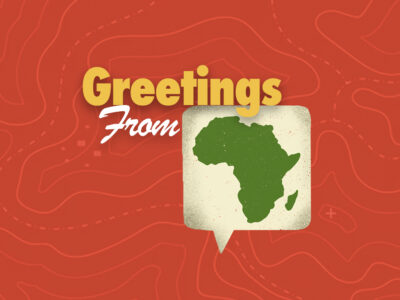
Reframed Stories asks people to respond to dominant themes in news coverage about themselves and the issues that affect them. The stories center on the reflections of persons who are more often represented by others than by themselves in media.
Abigail Gualinga is a youth leader in indigenous community of Sarayaku, Ecuador.
Este gráfico me dice que los medios no toman mucho en cuenta a los jóvenes y nosotros también tenemos derecho a que nuestras opiniones sean escuchadas.
Los jóvenes queremos hacer muchas cosas por nuestra comunidad y tenemos muchas ideas y propuestas. Además, queremos seguir aprendiendo e involucrándonos más en distintos temas importantes para nosotros, pero cuando veo este gráfico noto que los medios masivos no tienen espacio para nosotros: la palabra “jóvenes” ni siquiera aparece aquí.
This graphic tells me that our media does not take indigenous youth into account, and we have the right to make our opinions heard.
We want to do many things for our communities and we have lots of ideas. We also want to keep learning more and getting involved in different topics that resonate with us, but when I look at this graphic I see that mainstream media might not have any space for us: the word “youth” does not even appear here.

In this cloud of dominant words associated with “indígena” in Ecuadorian news coverage between January 2016 and January 2017, terms related to “youth” (jóvenes) did not appear. Source: Media Cloud (View larger image).
Necesitamos más medios donde los jóvenes podamos involucrarnos y hacer escuchar nuestras voces porque nosotros también tenemos mucho que decir y ofrecer. Necesitamos encontrar formas de empoderar a los jóvenes para que se involucren en las iniciativas de nuestros mayores y de otros líderes de la comunidad, para que así podamos continuar con el trabajo que ellos han venido haciendo. Si no lo hacemos, los jóvenes pudiéramos sentirnos excluídos de la lucha colectiva de nuestros pueblos, y todo el trabajo que se ha hecho podría perderse con el tiempo.
Necesitamos prevenir que esto pase, tenemos que crear puentes entre las generaciones para que personas de todas las edades podamos colaborar en los temas que son importantes para nuestra comunidad y en los problemas que nos afectan a todos por igual.
We need more outlets where youth can get involved and make our voices heard because we, too, have much to say and offer. We need to find new ways to empower youth to get involved in the initiatives initiated by our elders and other leaders from our community, so that we can continue with their legacy and we can keep strengthening the work that has been done so far. If not, young people could feel excluded from the collective battles that are taking place at the moment, and all the work that has been done could be lost as time passes by.
We must prevent this from happening by finding avenues to bridge generations closer together, so that people of all ages can collaborate in the topics that are important for our communities, and in the issues that affect us all.

Youth workshop in Sarayaku. Photo provided by Abigail Gualinga.
This is part of a Rising Frames series developed in close collaboration with the indigenous community of Sarayaku and the Shuar nationality, both situated in the Ecuadorian Amazon region. The Sarayaku and Shuar people have battled at national and international levels to stop extraction projects in their territories, and public messaging has been an important part of this struggle. We asked members to respond to media analysis that suggests how topics related to their communities are represented in news.


